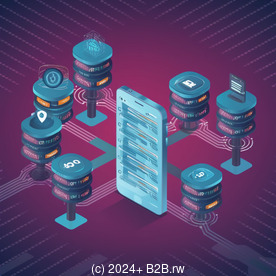The Importance of Simplifying Payment Reconciliation
Payment reconciliation is a crucial financial process in any business, serving as the backbone of accurate financial reporting and decision-making. It involves comparing two sets of records—the records maintained by a company and the statements provided by their financial institutions—to ensure they are consistent and accurate. Discrepancies in these records can lead to financial discrepancies, cash flow issues, and misrepresentation of the company's financial health.
The complexities of managing payment reconciliations arise from using a variety of data sources, which may include bank statements, payment processors, and internal accounting systems. In organizations where financial data is spread across numerous platforms or systems, manual reconciliation processes can be tedious and error-prone, increasing the risk of overlooking critical discrepancies. As a result, finance professionals may spend an inordinate amount of time sifting through financial data rather than focusing on strategic initiatives that can affect the company's growth and profitability.
Financial discrepancies due to inefficient reconciliation can disrupt operations, hurt vendor and customer relationships, and expose businesses to financial risks. Thus, simplifying payment reconciliation is not merely an operational hurdle; it is a necessity that significantly impacts the accuracy of financial reporting and the overall health of a business.




Analyzing Payment Reconciliation from Various Perspectives
Economic Perspective
From an economic standpoint, effective payment reconciliation translates into cost savings and improved resource allocation. By automating reconciliation processes, businesses can eliminate redundancy, reduce errors, and cut down on manpower costs associated with manual processes. The financial implications are clear: improved efficiency leads to less wasted time and resources, allowing staff to focus on higher-value tasks. Thus, investing in payment reconciliation solutions can yield substantial economic benefits to the organization.
Technological Perspective
The technological advancement of reconciliation solutions has revolutionized how businesses manage their financial data. Modern reconciliation platforms utilize artificial intelligence and machine learning capabilities to automate transaction matching, allowing for quicker and more accurate results. With these technologies, businesses can process vast amounts of data in real time, significantly reducing the manual workload. Moreover, these solutions often come equipped with analytics tools that provide in-depth insights into payment patterns, enabling finance teams to make data-driven decisions.
Legal Perspective
From a legal perspective, accurate payment reconciliation is imperative for compliance and auditing purposes. Companies are subject to numerous laws and regulations regarding financial transparency, and failure to maintain accurate financial records can open the door to legal repercussions. Effective reconciliation processes ensure that companies can produce accurate financial statements that adhere to relevant compliance requirements, safeguarding them from potential legal challenges.
Social Perspective
The social implications of payment reconciliation revolve around fostering trust within a company’s internal and external relationships. When companies demonstrate financial reliability through accurate reconciliation, they cultivate strong relationships with vendors, clients, and investors. They build a reputation for trustworthiness and integrity, which can significantly affect customer loyalty and stakeholder engagement. Conversely, inconsistent or inaccurate financial reporting can lead to a loss of credibility and eroded trust.
Psychological Perspective
Psychologically, the pressures and stress associated with financial discrepancies can affect the morale of accounting and finance teams. When errors arise due to manual reconciliation methods, it can lead to frustration and a lack of confidence in the data. Simplifying and automating reconciliation processes can alleviate this stress, providing team members with a sense of control and accuracy over their financial data. This enhanced sense of security translates into better decision-making and increased job satisfaction.
Business Perspective
From a business viewpoint, streamlining payment reconciliation contributes to operational excellence. Organizations that employ efficient reconciliation systems are better positioned for growth, as they have a clearer understanding of their financial health. This clarity allows for better cash management strategies and financial forecasting, enabling businesses to make informed decisions about investments, expenditures, and expansion strategies.




Strategies for Simplifying Payment Reconciliation
To effectively simplify your payment reconciliation processes, consider the following strategies:
- Automate Reconciliation Processes: Leverage software solutions that automate the matching of transactions, reducing manual effort and increasing accuracy.
- Centralize Financial Data: Utilize integration tools to centralize all financial data into a single platform, minimizing discrepancies originating from disparate systems.
- Implement Real-time Tracking: Use real-time tracking to facilitate ongoing reconciliation, allowing discrepancies to be identified and addressed as they occur.
- Utilize Advanced Analytics: Employ analytics tools to gain insights into payment behavior and patterns, which can reveal inefficiencies and inconsistencies.
- Train Staff on Best Practices: Invest in training your team on effective reconciliation practices that maximize the benefits of your software solutions.
By implementing these strategies, businesses can significantly enhance their reconciliation processes, ensuring accurate financial reporting and improved operational efficiency.




Transform Your Financial Operations Today
If you're an accountant grappling with inconsistencies and errors in your financial reporting due to cumbersome manual reconciliation methods, it’s time to simplify your workflow. Our state-of-the-art payment reconciliation software offers precise solutions starting from as low as $125. We provide a comprehensive approach to reconcile your transactions seamlessly and efficiently, enhancing financial clarity and accuracy.
Interested in knowing more? Feel free to contact us at www.B2b.Rw using email, phone, or online form. If you’re ready to take action, our payment reconciliation solution is available at a competitive price of just $125. Please proceed to our Checkout Gateway to pay the amount of $125 to our company. Upon payment, reach out with your receipt and details, and we will assist you in streamlining your payment reconciliation process. Thank you for your choice to enhance your financial operations!






